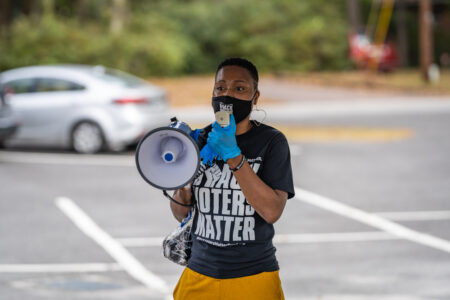Attending an HBCU has a positive effect on the mental health of Black students, according to a new study.
Published in the American Journal of Epidemiology’s issue this month, researchers from the University of Minnesota School of Public Health looked at the mental health of both Black students at HBCUs and Black students at mostly-white schools. Nearly 500 students were involved in the study, documenting their mental health from their early years in high school to some years after graduating college.
In their findings, the researchers reported that the participants who went to an HBCU reported fewer symptoms of depression than those who went to mostly-white institutions. Seven years after graduation, the HBCU attendants were still found to have fewer symptoms when compared to the Black students who went to non-HBCU schools.
For the students who exhibited depressive signs in their teenage years, these symptoms were alleviated to an extent once they attended an HBCU. Those who went to primarily white institutions, referred to as PWIs in the study, had less of a change in mood.
“HBCUs are an essential part of higher education, but there has been little research examining how attending an HBCU versus a PWI is associated with mental health for Black students,” said the lead author of the study and a postdoctoral fellow, Naomi Thyden, per the University of Minnesota. “This research provides evidence that the HBCU environment can have a positive impact on long-term mental health outcomes for Black students.”
At the conclusion of the study, the researchers called for an increase in HBCU funding. Despite educating a majority of Black American students across the nation, these universities are being underfunded. According to a 2019 report by the nonprofit American Council on Education, the latest report on the underfunding of HBCUs, funds to HBCUs were found to be 70% behind those given to institutions that aren’t HBCUs. The funds in terms of “private gifts and grants” also made up a smaller partition of the overall money made by HBCUs; whereas they made up 17% of HBCU revenue, these monetary loans made up 25% of non-HBCU institutions.
With the Biden-Harris administration, however, some improvement was made in the funding of HBCUs on account of the COVID-19 pandemic. According to the White House, more than $2.7 million were given to the schools as part of the President’s American Rescue Plan. Of this money, half were given directly to the students.








